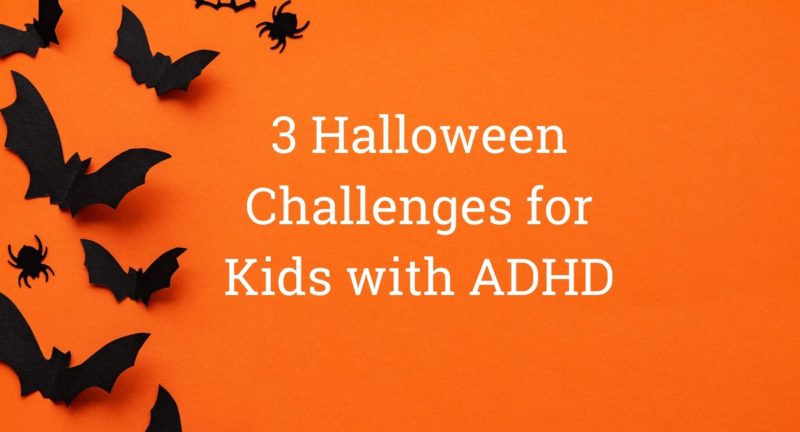
Does Your Child Have ADHD? Here Are 4 Surprising ADHD Symtpoms in Kids
Attention deficit hyperactivity disorder — most often referred to simply as ADHD — is a mental health condition characterized by a combination of inattention, hyperactivity, and impulsiveness. ADHD affects over 9% of American children, according to the Centers for Disease Control and Prevention — that’s roughly 6 million children. About 4 million of those children are between the ages of 6 and 11.
ADHD affects more boys than girls (12.9% versus 5.6%), and difficulty paying attention in school is a prominent symptom, but it’s not the only symptom of ADHD in kids. [1] The condition may affect children in many different ways, which may make it difficult for parents to spot the signs of ADHD, especially in younger children.
Undiagnosed and untreated ADHD can negatively affect your child’s quality of life, especially his or her school performance. That’s why our health care professionals at NextStep 4 ADHD recommend you visit us as soon as you spot the signs or symptoms of ADHD in your child.
Continue reading to learn more about the common symptoms of ADHD in children — and how we can help.
What is ADHD?
ADHD is a neurodevelopmental disorder that affects your child’s ability to focus and control impulses. [2] ADHD is not a lack of willpower to focus on the task at hand; instead, most experts believe the development of ADHD may be influenced by a child’s genes, the presence of toxins in his or her environment, brain injuries as well as subtle nuances in the hardwiring of his or her brain. [3]
Common Symptoms of ADHD in Kids
Children with ADHD are known for fidgeting or demonstrating disruptive behavior in school, but these are just two signs of ADHD. ADHD symptoms all fall under three categories:
- Inattention: These symptoms are related to the inability to maintain focus on a specific task.
- Hyperactivity: These symptoms are characterized by excess movements.
- Impulsivity: These are hasty actions that are performed without forethought.
Below is a sample of common symptoms that may affect children with ADHD:
- Becoming easily distracted during tasks, including school work
- Skipping the fine details, especially in the directions for homework or school projects
- Difficulty maintaining focus when speaking with others or holding conversations with teachers; inability to repeat back what you just said
- Self-focused behaviors such as interrupting the teacher
- Inability to wait for his or her turn in line or while playing a game
- Emotional symptoms, including increased outbursts (that are not age-appropriate) or increased temper tantrums
- Inability to sit still, including wiggling, fidgeting
- Difficulty playing quietly
- Increased careless mistakes on homework or schoolwork, not related to laziness
- Disorganization, including a messy desk at home or school
- Forgetfulness, including misplacing homework or favorite toys
4 Surprising Symptoms of ADHD in Kids
In addition to the above symptoms, ADHD can present itself in more surprising ways, symptoms that may — at first — seem unrelated to ADHD. These include bedwetting and daytime wetting, time blindness, and meltdowns.
Bedwetting and daytime accidents
While it’s normal for a child to have an occasional accident, daytime accidents are 4.7 times higher in children with ADHD. [4]
Time blindness
Time blindness is more than just poor management of time. This can manifest in many ways. A child may seem surprised and upset when it’s time to leave the park, even after a 5-minute warning. Time blindness can also affect a child’s ability to finish tests during the allotted time at school. It’s not that your child is ignoring you; he or she may not just perceive the passage of time in the same way as a neurotypical student.
Meltdowns
Unlike a temper tantrum, a meltdown doesn’t seem to cease if a child gets what he was asking for. A meltdown is how your child reacts to feeling overwhelmed. Sensory overload can even trigger a flight-or-fight response, which leads to yelling, uncontrollable crying, and even lashing out towards you or others. It can be very difficult to calm down a child in this state.
Poor social skills
Untreated ADHD can have profound effects on a child’s school and social life. Because untreated ADHD can make it difficult for a child to read social cues, he or she may struggle to produce quality work and form meaningful relationships with classmates.
When to Worry about ADHD Symptoms in Kids
Daydreaming and even fidgeting can be normal experiences for kids, but if your child regularly experiences these symptoms — at home and school — it may be beneficial to schedule an evaluation for your child.
Remember, ADHD is treatable!
Holistic Treatment Options for Children with ADHD
If you notice any of these symptoms of ADHD in your children, don’t hesitate to reach out to the experienced team of psychiatrists, pediatricians, psychologists, therapists, coaches and healthcare professionals at Next Step 4 ADHD. Working with a coach or therapist can help things like time management, reducing the frequency of meltdowns, and improving social skills.
We treat ADHD with a holistic, 5-tier approach and provide:
- Assessment
- Education
- Coaching
- Support
- Medication, if needed
Regardless of what age your child is, treatment can help provide the relief your child needs.
Questions? We’re Just a Call or Click Away
At NextStep 4 ADHD, we’re happy to provide comprehensive care for ADHD — and you don’t have to wait weeks for an appointment. If you’re struggling with the symptoms of ADHD, visit one of our convenient Kentucky offices in Louisville and Lexington. Call the location of your choice, or send us a message to request more information.
You can also request an appointment easily here.
References:
- What Is ADHD?, www.psychiatry.org/patients-families/adhd/what-is-adhd.
- “Data and Statistics About ADHD.” Centers for Disease Control and Prevention, Centers for Disease Control and Prevention, 15 Oct. 2019.
- “Attention-Deficit/Hyperactivity Disorder.” National Institute of Mental Health, U.S. Department of Health and Human Services.
- Tajima-Pozo, Kazuhiro, et al. “Treating Enuresis in a Patient with ADHD: Application of a Novel Behavioural Modification Therapy.” BMJ Case Reports, BMJ Publishing Group, 10 June 2014.
Related Posts
How Therapy Helps Treat ADHD in Kids
Although ADHD medication can help reduce the symptoms of ADHD, medication isn't...
3 Halloween Challenges for Children with ADHD
Halloween is right around the corner, and for many kids, it's one of the most...



Do u take insurance?
Hi Kerri!
Thank you for your question. Be on the look-out for an email from one of our team members.
Have a great day!
Amazing Article!
https://drsquish.com/
Thank you, Donna!